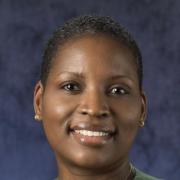Five Non-Negotiables Needed to Move Early Childhood Education Beyond Its Rhetoric

This blog post was originally published on New America's website on July 24, 2018.
To facilitate interaction among ideas presented in Moving Beyond False Choices for Early Childhood Educators, Series Editor Stacie G. Goffin offers opening comments. For readers new to the Series, her introduction explains the series' intent.
In her role at the National Association for the Education of Young Children, Marica Mitchell is heavily involved with Power to the Profession, a national collaboration focused on defining and advancing early childhood education (ECE) as a professional field of practice. Drawing from extensive experiences with the initiative, Marica identifies five non-negotiables she believes all of us need to accept if we are to unravel ECE's thorny knot and advance ECE as a profession.
What a time to be alive! As a NAEYC staff member conceptualizing and informing the direction of Power to the Profession, a 15-member national collaboration defining and advancing early childhood education (ECE) as a profession, it’s exciting to experience the synergy across the country as we advance toward becoming a unified, effective, and accountable profession. I do not, however, speak on behalf of NAEYC or the Power to the Profession Taskforce. My perspective, as expressed below, draws from personal reflections about the complexities, frictions, and mistrust embedded in this discourse.
Two “keep it real” advocate groups routinely energize me — ECE workforce policy veterans and practicing educators. The veterans have experienced more than four decades of what they see as minimal progress and can quickly point to self-inflicted barriers impeding our progress. The practicing educators (including faculty and administrators) are living the field’s identity and compensation crisis. They’ve lost patience with the field’s seemingly never-ending rhetoric. From ongoing conversations with these individuals, I’ve concluded that addressing ECE’s thorny knot depends on grappling with what I’ve personally come to think of as five non-negotiables essential to the field’s advancement as a profession.
1. Advancing ECE as a profession requires creating a stable 1.0 version, inclusive of compensation, before building towards more visionary versions.
As the field embarks upon building a unifying framework for an ECE profession, I believe its first iteration must be capable of lifting up the field across all sectors, while also paving the way for future, enhanced versions. For educators and administrators living daily with ECE’s crisis, moving forward with a version 1.0 is imperative. They have neither the financial nor social privilege to wait decades for a bold, future vision to materialize. They want a “right now” movement that guarantees compensation parity.
In contrast, my workforce policy veterans are driven by a more daring and visionary future. They’ve experienced too many incremental and isolated wins and want assurances that version 1.0 will be neither static nor regressive. They want the visionary seeds they’ve been planting for decades to be harvested. I think of them as the optimists Luis Hernandez describes when he shares his cautions about unrealistic expectations for academic uniformity. Still, since their leadership has contributed to the field’s considerable progress over the past decades, there’s reason to believe their vision, however lofty, is attainable.
2. Advancing the profession means naming inequities and using an equity lens for driving decisions about ECE’s future as a profession.
Organizing as a profession can lead to becoming insular and exclusive. In my review of organized professions, I’ve seen that reliance on social structures like higher education and state licensure can unintentionally and intentionally produce cultural, linguistic, and racial inequities. Consequently, advancing as a profession can be treacherous territory. The risks of decreasing ECE’s diversity are real. As advocates, we must be prepared to name and disrupt structural inequities and ensure that targeted supports are in place to recruit and retain a diverse profession.
3. Advancing ECE as a profession means we have to confront the field’s biases.
We are products of the same racist, sexist, and elitist systems we are seeking to disrupt. This means we need to interrupt structural inequities external to ECE, as well as confront our own implicit and explicit biases. When, for example, I visit rural communities and observe that universities or practicum teaching sites aren’t a few train stops away, I have to confront my city bias. Disparaging comments about Child Development Associate (CDA) Credential™ holders and associate degree graduates and their faculty expose a more global example of our field’s elitist sentiments.
4. Advancing ECE as a profession means we need to be more intentional about policy and financing decisions within our control.
“Can somebody just teach me how to work the system?” is what a frustrated practicing educator asked towards the end a three-hour conversation about ECE’s movement toward becoming a profession. Because we have some agency over systems that influence our work, we can — and should — be more strategic and intentional about ECE policies and funding decisions. For example, are we funding “industry recognized” degrees and credentials that are high-quality, portable, and stackable or are we funding state credentials that may be more accessible but have minimal value in the wider market? Do the QRIS and pre-k systems we design and finance support the coaching and quality assessment industry while only minimally supporting educator compensation and working conditions?
5. Advancing ECE as a profession means we respect and leverage the profession and profession-led standards and systems.
In the research, policy, and practice triad, we must ensure that ECE’s expertise is not marginalized. As Sherri Killins Stewart pointed out, policymakers need to challenge their assumptions about “frontline providers.” While research and policy should inform practice, they, in turn, should be informed by our practices.
State and federal agencies intentionally leverage the standards and systems developed by professions. They don’t spend limited public dollars duplicating (or worse disregarding) profession-led accreditation systems or ignore industry credentials. We can’t denigrate profession-led systems or organizations and then expect ECE to be an influential player.
In closing, if ECE is to realize its aspirations to become a recognized profession, these five non-negotiables must undergird our decision-making. They highlight the complexities involved with moving forward as a profession and also identify the mental shifts we collectively need to make. To move beyond false choices, we must be willing to practice what we preach. If we want the public to adopt new mental models about financing ECE, we too must be willing to shift our mental models.
Marica Cox Mitchell is vice president, early childhood for the Bainum Family Foundation. Marcia has worked in the early childhood field for more than 20 years. Her diverse experiences have allowed her to view the field from many perspectives, including the classroom, program, district, state, and national levels.
